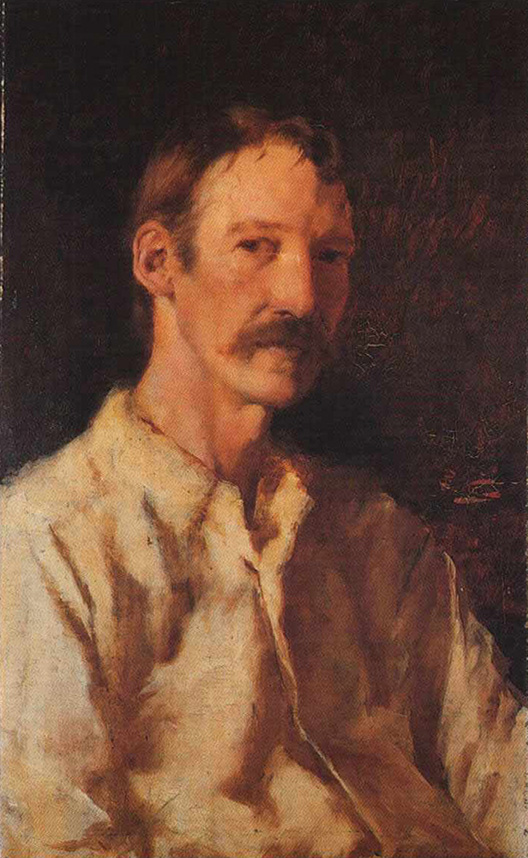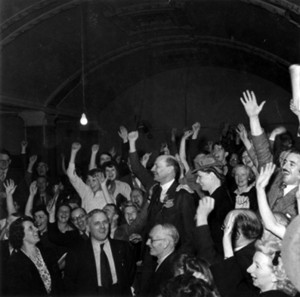-
Posh boys who don’t know the price of milk
Politicians and the voting public – addressing the problems of disconnection

Published by James Mac Daid on Friday, April 19, 2013

Robert Louis Stevenson
The words of the 19th century Scottish novelist and poet Robert Louis Stevenson. One may read such a quote and dismiss it as an utterance of a bygone age, a time of great political, social and financial inequalities in which Parliament was governed by an elite, prejudiced few.
For many, today’s UK society is one of freedoms, of political empowerment, of social mobility and equality. The majority of these progressive changes have come from the representatives of the ‘Mother of All Parliaments’ and we have all collectively benefitted from the democracy that we live in. So our politicians and political system must surely be respected? Are we no longer ‘ashamed’, as Robert Louis Stevenson so emphatically put it? Not according to the ComRes poll in July 2012, which revealed that only 1 in 10 people trust politicians to tell the truth, the same level of trust as for bankers and less than journalists.
Where does this distrust in our Parliamentary representatives stem from? Although there are arguably a number of reasons, I suggest it is the rise of the ‘professional politician’, and perceptions of that new political class by the voters, that are the key factors in this disconnect. A House of Commons Library study in July 2012 revealed that 90 Members of Parliament (MPs) have never held a job outside of politics; compared to just 20 MPs in 1982. If one looks further at the statistics, working class MPs have all but disappeared from Westminster with just 25 former manual workers elected as MPs in 2010, compared to 98 in 1979. As the British political commentator and journalist Peter Oborne argues, this rise of the “professional politician” has led to a rising perception that MPs are not one of us or, as Nadine Dorries MP more famously said of the Prime Minister David Cameron MP and the Chancellor George Osborne MP, they are “posh boys who don’t know the price of milk”.
This perception of a political class that is out of touch has been cemented through a struggling answer to the economic problems of the 2008 financial crash, the parliamentary expenses scandal of 2009 and, in a time of austerity, the majority of MPs feeling they are underpaid for their role as revealed by a recent survey carried out by the Independent Parliamentary Standards Authority (Ipsa).
This disconnect is being translated into a worrying political reality for British politics. Voter turnout has been falling remorselessly for decades, and the state of the parties is just as bad — once genuine mass movements, they are in danger of becoming hollow shells. One could argue that this is just the sign of the times, in which the old party machinery doesn’t appeal to a public that is more oriented to individual tastes and needs, and less to the collective connection and identification offered by mass political parties. However, attendances at concerts, exhibitions, and sports contests are all on the increase. The phenomenal success of the Olympic and the Paralympic Games in London showed there is a huge public desire for collective experiences and a ‘national togetherness’. However, this enthusiasm doesn’t extend to the political arena. Indeed, Philip Gould, Labour’s former political strategist, used to compare politicians to footballers playing in empty stadiums, with the spectators having all lost interest and gone home.

Is high voter turnout a thing of the past?
Does this disconnect matter? Not according to Ben Page, Chief Executive of Ipsos Mori, who says “We (the public) have never trusted politicians much”. But I think it does. If you cannot trust the politicians that rule in your name, how can you trust the laws that they pass and believe in the legislation they enact? A disenfranchisement of the voting public from their political representatives leads to fundamental questions about the legitimacy and, by extension, the power of the State to rule. If those are the questions that are being asked of the State, then you are on the road to tyranny or anarchy.
So how do you address this voter distrust and disconnect with the political classes and turn back the ‘barbarians from the gates’? I think there are two avenues that can be followed. The first step is to be more honest with the public. Politicians’ habits, perceived correctly or otherwise, of deceit and dissembling, as illustrated by the expenses scandal have exacted a terrible toll. I believe, and perhaps it’s an obvious thing to say, that the voting public want to vote for someone they believe in, someone they perceive to be an honest person. I think politicians can connect with an electorate on a mass level if they are seen to be greater than the sum of their political parts, the election of Tony Blair in 1997 and Barack Obama in 2008 highlight what can be achieved. In addition, (and it applies to the previous two examples), politicians are said by the former Governor of New York Mario Cuomo to “campaign in poetry and rule in prose”, in that the grand promises are sometimes made on the campaign trail without thinking how they will be delivered; this also has to be addressed. The damage that can be caused by not keeping political pledges, or appearing to be dishonest, are hammer blows to the public’s confidence. Once in office, I think politicians need to be more honest about the realities of their role and decision making; the perception of overpaid bureaucrats that are not meeting the needs of their constituents has to be tackled much more aggressively.
The second step is to make politics relevant to ordinary people’s lives again. Arcane debates, like those about constitutional reform, are bound to alienate voters. The job is to show the political process can be a real tool for improvement, through challenging the might of the big institutions that have let down the public so badly. For example, in the world of finance, this could mean establishing local banks, geared towards local needs, as well as setting up credit schemes so lower earners can have access to small loans without suffering extortionate rates of interest. Actions and policies such as these could show the Government to be more on the side of the voter; to be a relevant institution that directly affects their everyday lives.
Ultimately, I am an optimist. I believe that we have a vibrant political system that has taken some hard knocks, whether self-inflicted or otherwise. I believe that the general distrust and disconnect amongst the UK voting public can be overcome, that Parliament can be something we can be proud of once more. If an arcane institution like the British Monarchy can renew itself, to be once more loved by the public after the death of Princess Diana and opprobrium shown towards it, why can’t Parliament?